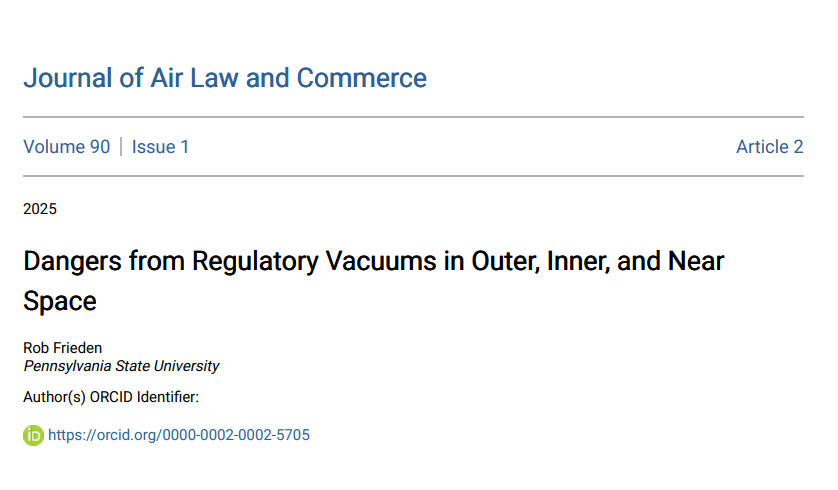ABSTRACT
Space, "the final frontier," has become an attractive,
but increasingly risky market for both public and private investments. Gold rush enthusiasm anticipates solutions to
the Digital Divide via small low earth orbiting satellites, extraction of valuable
minerals from asteroids, a vibrant space launch and tourism industry, and expanding
earth observation opportunities. Such
entrepreneurial boldness juxtaposes with a severe lag in government oversight,
consumer safeguards, and essential operational guardrails. The ambitious plans
of Elon Musk and other space entrepreneurs could fail, despite recent market
success, as SpaceX’s plans for 148 rocket launches in 2024.
Without
substantial refinement of global space treaties and effective national
regulation, expanding and imprudent use of space resources could trigger
"the tragedy of the commons," rendering the most valuable regions of space
unusable. Satellites could collide, or strike orbiting debris at extremely high
speeds. Accidental collisions are more
likely in a crowded orbital region, such as 200-1200 miles above earth where
low earth orbiting satellites operate.
A much more
costly calamity can occur when a valuable, fully operational satellite collides
with space debris, such as a deactivated satellite, or when it becomes a target
in a test of anti-satellite (“ASAT”) technology. The likelihood of a space object collisions
increases substantially when space faring nations and private ventures do not
nudge no longer useful objects upward, farther into deep space, or on a
downward trajectory toward earth that would guarantee complete
vaporization. The testing and future use
of ASAT technology risks “weaponizing” space, despite treaty-level commitments
to use it solely for peaceful purposes, benefitting everyone.
This article explains
how national governments have generated or tolerated the proliferation of space
debris to potentially dangerous levels of space debris without penalty. It explains
how intergovernmental agreements, such as the five space treaties administered
by the United Nations, and the space/spectrum management agreements of the
International Telecommunication Union, have not required space debris
mitigation, nor sanctioned operators responsible for generating more space
debris.
The failure to
address and resolve proliferating space debris from ASATs and abandoned space
objects will increase the potential for calamities that render space access too
risky. The article identifies how intergovernmental agreements can mandate space
debris mitigation, impose sanctions for noncompliance, and create financial incentives
for recycling and removing existing debris.


